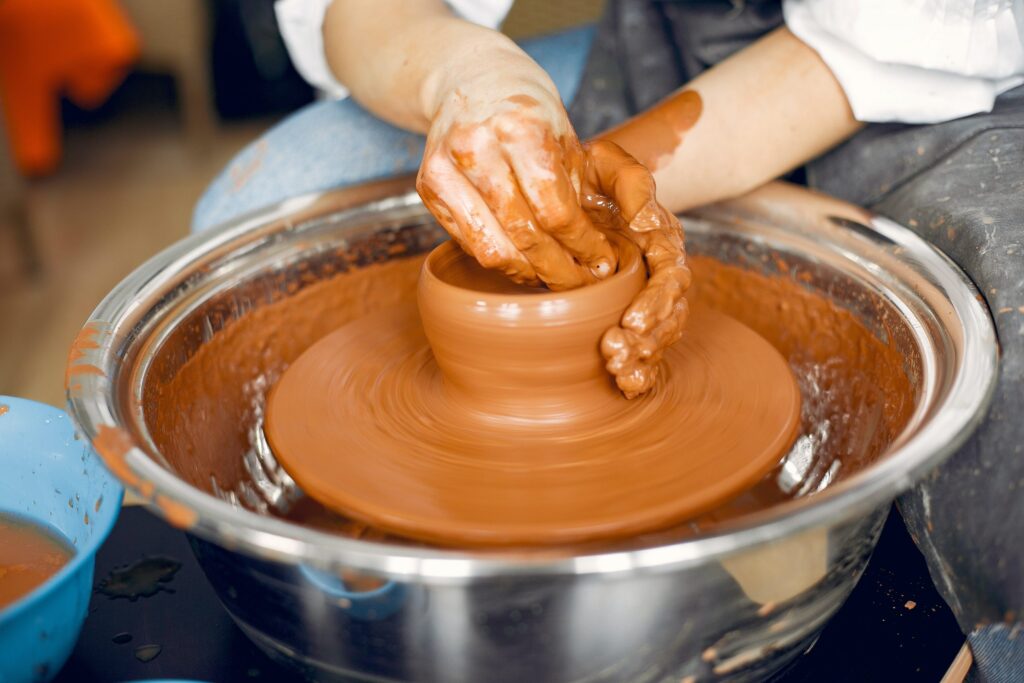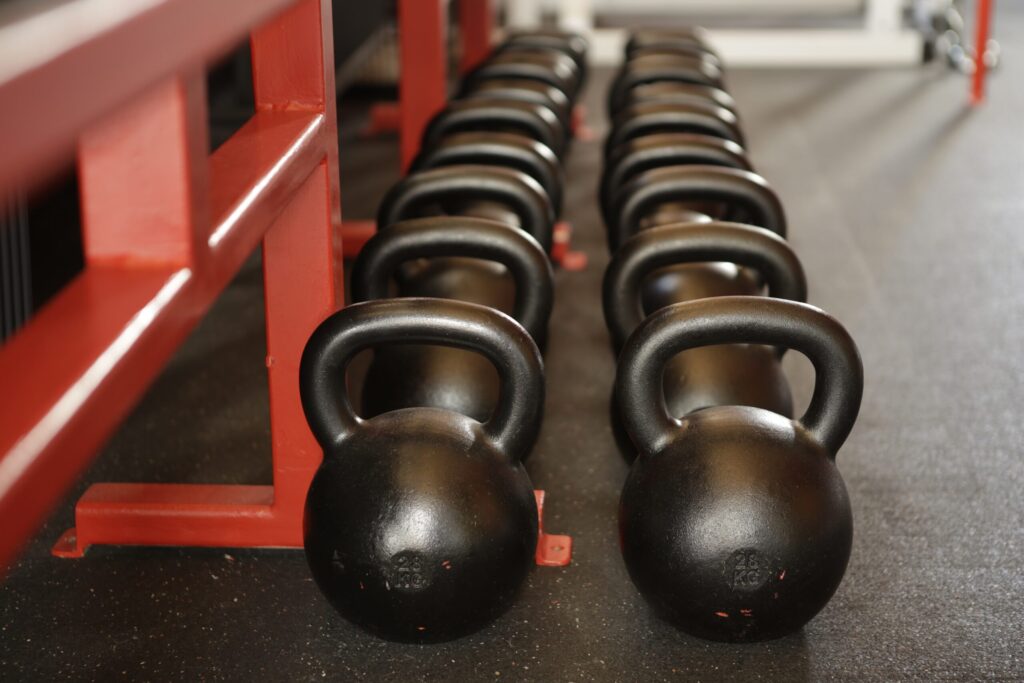How swordplay shapes our life journey

I revisit the question “Why do swordplay?” on a regular basis. Many people ask me what my reason is for practicing something that is arguably esoteric and a few centuries past its true usefulness.
The answer may not be what people are expecting. At the end of the day, I feel that hundreds of years past its applied art of self-defense or offense, swordplay has the opportunity to be more deeply useful than it ever was during the most violent times of its history.
A way to target change
In life I am working on becoming the greatest person I can be. Swordplay just happens to be one of my vehicles of choice. You see, it’s actually rather hard to simply target personal greatness. The challenges of one’s life can feel immense and overwhelming. Pinpointing the areas you need to improve as a gross whole is not just daunting, it’s a challenge in perspective. How can one truly see all the areas that they need to grow and plot a course toward them without some kind of tool or context? Pursuing an art like swordplay gives me something tangible I can aim myself at. Something that in and of itself is rewarding, and rewards me in turn.
Through swordplay I have been able to practice discipline in learning, and overcome plateaus and frustrations on the path to mastering an art. I have had to face personal fears through sparring, teaching, competition, and being a student. It has taught me to be humble, as there is always someone out there better than me, and it’s even more of a lesson (and a privilege) when those people are my students. Swordplay has helped me become a part of community, share a common struggle, become connected to my cultural past (as well as the history of other cultures). It has created a beautiful and inspiring excuse to connect with others around the world. There is not a challenge in my life for which I have not found its analogue in swordplay.
A way to find solutions
We carry our life’s problems with us into every context. This does not mean that you have an inescapable burden—much to the contrary, each new environment provides a fresh outlook. A problem you don’t know how to solve in one place will have an obvious solution in another, and once solved there the lesson can be applied elsewhere. Learn about yourself within the safe environs of swordplay training, then take those discoveries outside to the rest of the world, making yourself and everything around you better.
An artist friend of mine once said the path to becoming a great painter was to become a great person and then paint. I’ll echo those thoughts here: the path to becoming a great swordsman is to become a great person, then work your martial skills for good.
An eagerness to learn, willingness to work hard, and generosity of heart will make you a truly expert swordfighter. Enjoy your training!
Devon





I have frequently asked myself the same question, “why do swordplay?” for the exact reasons you’re tlaking about, mostly because I’ve studied other martial arts in the past. To someone who doesn’t get why HEMA is awesome, it just looks like a nerdy way to get some exercise, a sport with no real practical applications in self-defense. To that my answer has always been, “true, but a gun can kill a fifth-degree black belt as easily as it can a HEMA expert.” Martial arts are certainly not as practical as they used to be.
But even so, why HEMA? It’s not like walking around wearing sharp swords is something a normal person would do in the 2020s (a geek like me, maybe… just kidding). Of course if I were in a situation where I had to defend myself, I’d rather have a sword and know how to use it than be stuck with just my bare hands… but like I said, if the attacker isn’t wielding a sword him/herself, than what’s the point? At least with ju jitsu, karate etc. it could actually be useful someday (though in all cases we certainly hope it never comes to that). And if all you’re looking for is exercise, well, there are dozens of ball-sports that do that.
As you can see, this is a subject I have struggled with even in this early stage of my HEMA journey; so I appreciate that Duello addresses this topic, and I think you have a very valid point here. Martial arts teach discipline, courage, and all the important stuff you just described. There’s a certain camaraderie among people who train together, and plenty of challenges to be overcome, as with any team sport. So the way I see it, if I would rather swing a sword around than throw a football, why not? I’m a big fan of HEMA, despite my ramblings about its impracticality. All that to say, thanks for the blog post. 😀
hi mikey32328. Loved hearing you and your thoughts. The lack of “practicality” in swordfighting is like any other artistic endeavour—violin, painting, architecture—it’s the cultivation of something more internal, more personal, more individual than can be described, all within the context of community and fellowship. Keep going, your journey will take you great places!
I find the way HEMA practitioners approach learning martial arts to be refreshing. The necessary focus on keeping your training partner safe, respect, and humbleness is a welcome change from the way many eastern martial arts is practiced.
It is also a great complement to studying eastern martial arts.
There are many things that are closely guarded secrets, or spoken about in very vague, mystical terms in eastern MA. But then Fiore or Lichtenauer spell it out in glorious details back in the early 1400s. And suddenly the mists clear and things start making sense.
And you can take the focus on safety, respect, and humbleness back with you to hopefully spread into the wider martial field.
hi leganto. True and truer! Safety, respect and humility and hallmarks of a great artist in any field! Thanks for sharing.
Great article. Got me thinking.
As for me, I don’t look for “usefulness” in HEMA. I certainly don’t have a utilitarian approach to it, and don’t feel the need to explain my engagement in this kind of training in terms of a practical and sensible “what for”. Nonetheless, I can certainly find some logical ways to assign some useful purposes to it, such as (and already addressed in the article) overcoming the fear of combat, becoming a better person by exercising humbleness in learning, finding connection with a cultural past, transposing whatever is efficient to present-life situations of self defence, among other “reasonable reasons” I can come up with. But these are not the main, deep motors of my interest.
I do it because I find it fascinating in many senses, and this lures me. It is extremely fun, even more so because of its challenges. The techniques are well constructed (or re-constructed from the books of masters), there is a theory behind that is intriguing (because not familiar to us, 20th and 21th centurians), at the same time is based on pure and timeless laws of physics.
I feel compelled to discover and understand the ethics behind these kinds of martiality. What is to be an armed knight? What justifies the use of violence by a trained swordsman? What justifies a duel? Aren’t we, modern day egalitarians, somehow usurping the former nobles-only arts? And let’s not forget that, as a woman, I can face even more inquiries about the legitimacy of my taking up arms and mingling in these practices where for so long only men were expected and allowed!
The historical context from where it comes is too attractive, maybe more so because the full truth of it will never be known to me, so the intellectual challenge is humongous. My mind gets caught all the time.
But that’s not all!
Moreover, there is the richness of bodily sensations of carrying and handling the weapons, and to putting them to their business of attacking and defending. It feels great to observe and teach my body to behave in a combat situation, and to handle different swords (and other weapons). Their weight, their lenghth, their purposes, every one so unique in their specifics and also sharing so much in common as for the basic rules of nature.
Above all, all of this is shared. I see how I have to rely on the studies, discoveries and insights of others. And, although I can (and have to) practice many thing on my own, it is impossible to combat alone. So there is the added allure of communing such unordinary interests with a bunch of fellow beings. They have to be quite interesting humans to have around.
I guess my answer is that I seek swordplay mostly for its whys and not for its what fors.
If it is useful, it’s not in a utilitarian way, but for fun, intellectual and corporal pleasure, apprensticeship and communion, through the ideas and feelings I attempted to describe above.
Wow, stelamenezes, that was a beautiful expression of why we all love doing swordplay. (To be clear, as a woman you have 100% license to practice the art same as any other human! Gender exclusion is one part of the “historicity” that will never make it into our practice at DTV.) I wish you all strength as you pursue the art. People like you make the community rich and the relationships rewarding. Thank you!
I really appreciate this perspective; thank you for sharing. Like you, I find the historical side of it fascinating, and the exercise and the thought of someday being able to find someone else as into it as me are obviously huge draws for me as well. And I think above all, you nailed it in one word: fun. I’m hooked on HEMA, because it’s a really cool bit of fun! I grew up swordfighting my friends and brothers with plastic toys, before HEMA was even recognized as a martial art (apart from the actual medieval times lol). And today, for the first time, I took my sword and buckler outside and got to practice some moves that start in guardia alta – and OMGosh to hold up that sword is just a blast! And I think that’s why people who don’t feel that way are always looking for the what-fors – it doesn’t sound as fun for them as it is for us.
On another note, just an FYI, some of us guys have serious respect for ladies who can compete with them. I’ve played ice hockey against women, sparred with women in a dojo, and been in a few other situations like that. And in every instance, the women played/fought harder than any dude. In any form of combat, I’d take on some big galoot who thinks he’s a warrior (like me lol) over a woman who knows what she’s doing. Truth be told, in karate, I used to be intimidated by some of the ladies – they were intense! I could tell you some crazy stories, but you get the idea. So don’t ever let anyone doubt your abilities just because you’re a woman. I may be “preaching to the choir” here, but I just thought you would find that encouraging. 🙂